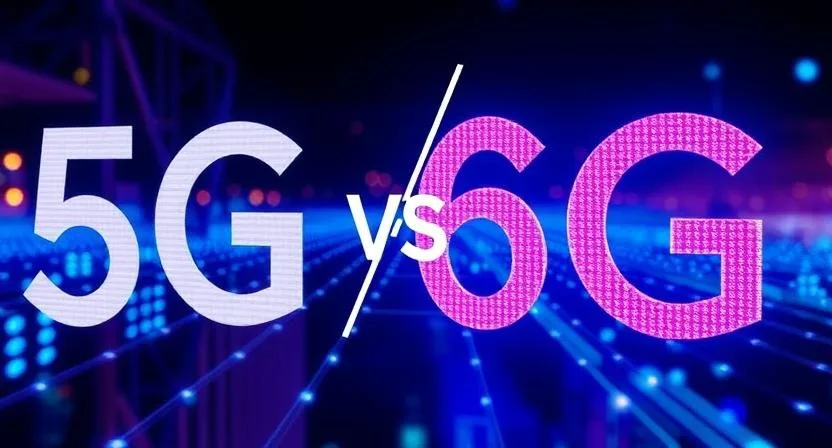What Is Quantum Computing?
Once allowed to live only in wisdom fabrication, Quantum Computing has the implicit to marshal in enormous financial benefits. Governments are rushing to be ready, but it also poses a peril to public security.
Summary
- By using the principles of quantum drugs, Quantum Computing may answer some fine problems at a rate that classical computers just can not match.
- While this enhanced processing power could be a huge profitable benediction for businesses that master it, it also poses a trouble to the public security of governments worldwide.
- Although backing in the sector is behind other new technologies, experts prognosticate that quantum computers may take times to reach this position.
Hey there!
A thesis to describe the relations of the smallest patches in the macrocosm was started by a group of European scientists a hundred times agone
. The current wisdom of quantum computing, which their findings established, has the implicit to marshal in revolutionary improvements in several disciplines, similar as spying, high-tech transportation, and health, among numerous others.
In its most abecedarian form, a quantum computer can outperform any current computer in working on some complicated fine problems. Experts worry that this capability might pave the way for lawbreaking advancements in quantum computing, which would demolish models of calculation-dependent encryption and raise global alarm about public security. Also, the technology has the implicit ability to accelerate exploration across several diligence, which might lead to profitable progress. While computer scientists extensively agree that quantum computers will continue to advance fleetly, the question of their practicality in the real world remains largely batted .
Can you explain quantum computing?
By using trap and superposition, two generalities from quantum drugs, quantum computers are suitable to represent situations with an enormous number of chances. Although Albert Einstein and other generations of physicists saw the field’s theoretical foundations as basically academic, new exploration is showing that, under veritably specific circumstances, scientists may put these quantum principles to use.
The” bit” is the unit of dimension for the length of a series of bones
and depths used in classical computing. Because there’s a finite number of bones
and bottoms that computers can handle, this system of garbling information reduces their processing capacity. Superposition allows quantum bits, or qubits, to shirk these restrictions; a qubit can be both 0 and 1 at the same time.However, quantumcomputers, which store data in qubits, If duly employed.
In what ways may quantum technology be put into use in the real world?
Quantum might have an effect in three crucial areas, according to experts
Data collection. bias operating at the quantum position are more equipped to descry and record nanosecond shifts in the Earth’s electromagnetic field, graveness, haste, pressure, and time. In proposition, this fashion might be used to ameliorate the delicacy of any outfit that takes a dimension, similar as thermometers, radar systems, or MRI machines.
Information exchange. Cracking sensitive information is a precedence for governments and businesses, and they allocate substantial coffers to this task. The development of new types of encryption and the acceleration of decoding might be eased by quantum technology. The idea of hacker- evidence cybersecurity might come a reality with the help of quantum dispatches, which use superposition to enable a type of cryptography called quantumcrucial distribution.
Data processing. Problems involving quantummechanics might be answered much more snappily with the arrival of quantumcomputers. Development of medicinals, design of batteries, and manufacture of semiconductors are all exemplifications of similar fields.
Some experimenters believe that quantum computing will have the topmost impact of all quantum technologies due to its broad practicality. Google experimenters claimed in 2023 that their quantum computer could do the work of a traditional supercomputer that would take 47 times in seconds. still, there are disbelievers among computer experts who contend that quantumcomputing is not veritably useful in the real world.
A brief history of quantum computing.
Although propositions of quantum dynamics have been around for glories, chroniclers agree that the 1920s marked a significant shift in the discipline, thanks to a swell of groundbreaking work in quantum mechanics by physicists like Niels Bohr, Werner Heisenberg, and Erwin Schrödinger. The offer to apply similar generalities to computers by computer scientist Richard Feynman in 1981 was another step forward.
After nearly ten times, quantum computing eventually showed signs of being suitable to crack canons. Peter Shor, a physicist at MIT, developed an algorithm in 1994 that proved quantum approaches could decipher traditional encryption styles used to cover state secrets far more snappily than a regular computer. A unforeseen affluence of billions of bones from governments into exploration burned a fierce competition to establish quantum dominance. Since the first commercially usable quantum computer was bought by U.S.- grounded defense contractor Lockheed Martin from Canadian technology company D-Wave in 2011, the assiduity has entered over$ 6 billion in investment from the U.S. government and private American enterprises.
How is it applicable to public security?
There will be major profitable and military paroxysms for governments to deal with if quantum computing renders conventional encryption obsolete. This implicit event has been dubbed” Q- day,” and according to some assiduity interposers, it might be as beforehand as 2025. But numerous in the field of computer wisdom suppose it may take another decade or further. The United States intelligence establishment has said that it’ll be at least the early 2030s before quantum computers are considered cryptographically significant.
Experts in public security, similar to CFR Military Fellow Marine Colonel Wilfred Rivera, believe that improvements may do much sooner than lawgivers anticipate, due to the fast specialized advancements in AI and other diligence. In order to save their lawbreaking edge, governments are doubtful to publicize Q- day, according to some judges.
Hackers would have an easier time piercing defensive measures in a Q-day script, allowing them to get access to vital systems like power grids and nuclear power shops. In 2023, the World Economic Forum projected that over twenty billion widgets will need to be upgraded or replaced in order to insure global security from this peril. These troubles are known to U.S. officers; a public security memo inked by President Joe Biden in 2022 advised that quantum computers with the capability to crack canons” could peril mercenary and military dispatches, undermine administrative and control systems for critical structure, and master security protocols for utmost Internet- grounded fiscal deals.”
With the arrival of quantum computing, governments are accumulating vast amounts of translated data from their adversaries in the expedient of understanding it. This “crop now, decipher later” strategy has been leveled as a blameworthiness between the two quantum technology titans, China and the United States. U.S. lawgivers discovered in December 2022 that adversaries may “steal sensitive translated data moment using classical computers and stay until sufficiently important quantum systems are available to decipher it.
The Chinese government’s security agency continued to level allegations against the NSA nearly a time after the incident, this time for “methodical” intrusions meant to steal sensitive Chinese information. Still, there are a number of nations that are laboriously seeking quantum advancements in military technology, including state- of- the- art radar systems.
Critics, meanwhile, say that Q- day is not a given and that we should not place too important stock in quantum computers’ capacities just yet. Some claim that quantum computing will noway be suitable to do practical tasks like decryption, and others maintain that its capabilities are purely theoretical ( PDF). Tarah Wheeler, a CFR Senior Fellow, describes a Q- day script as” wisdom fabrication,” but she does admit that there is a lot of plutocrat to be made in assuming on the future of quantum cryptography and quantum computing. Wheeler also notes that there are a lot of contract bones available to those who can convincingly argue against the situation.
In what ways is America getting ready for quantum?
Over the last decade, the United States has ramped up its sweats to speed up R&D in quantum technology, constantly with the backing of both major parties. President Trump of the United States increased backing for quantum technology in 2018 by subscribing the National Quantum Initiative Act( NQIA), claiming that the technology was important for “profitable and public security.” Investment in quantum exploration and development was quadrupled during the posterior three financial times

The National Science and Technology Council of the United States.
Additionally, federal agencies are actively working on developing standards for quantum computing. After selecting four post-quantum cryptography (PQC) algorithms in 2022, the National Institute of Standards and Technology (NIST) released three of them in August 2024 in the hopes that they would protect against quantum-boosted decryption.
However, there may be difficulties in obtaining funds to continue creating these standards. Despite several experts stating that more investment is needed to sustain a competitive edge, the NQIA-authorized funding ran out in September 2023. The fate of $3.6 billion in funding for quantum research and development is uncertain because reauthorization has not progressed in Congress.
Does any other nation have plans to develop quantum technology?
Quantum computing isn’t getting the same kind of attention from across the world as AI and other new technologies. Even though over 20 nations are working on quantum programs, only a few can manufacture quantum computers on their own. The reluctance of governments to share quantum technology is a contributing factor. Exports of quantum computers are restricted in the UK, France, the Netherlands, and Canada, among others. Only a third of the total investment in artificial intelligence in 2022 went into quantum computing, with $42 billion going into the field thus far.
While China is rapidly catching up, most experts believe that the US is currently at the forefront of quantum technology. When it comes to supposedly unhackable quantum communications, some observers claim China is ahead of the US, but when it comes to quantum sensing and computation, Washington is ahead of Beijing. Biden has signed an executive order specifically limiting private sector investment in Chinese quantum computing and oversaw a variety of export controls meant to limit China’s access to the sophisticated computing chips needed for quantum computers in an effort to keep the United States at the forefront of this technology.

Top 10 nations’ announced investments in quantum technologies as of 2022
Nevertheless, with a projected total exceeding$ 15 billion, China has declared the largest public investment in quantum technology compared to any other nation. Although the significance of the technology has been stressed by Communist Party authorities, some prominent Chinese quantum inventors have put mistrustfulness on that constantly cited statistic. Beijing is presently constructing a$ 10 billion public quantum lab; in a 2020 speech to party officers, Chinese President Xi Jinping emphasized the” strategic value” of quantum technology.
Do further advantages live?
Businesses might start seeing earnings from quantum technology as early as 2025, according to major operation advisers . The consulting company McKinsey prognosticated that four diligence — chemicals, banking, medical lores, and transportation — may reap the most advantages from quantum technology, which could contribute$ 2 trillion in value over the coming decade. For case, in 2023, Mercedes- Benz and IBM, the computer mammoth, declared their intention to work together to produce more effective batteries through the operation of quantum computing. fiscal institutions like Goldman Sachs are hoping that quantum will let them go on different requests more rightly, and pharmaceutical businesses are hoping that it’ll help them model medicine- suchlike composites briskly, which would speed up the creation of new drugs.
Enterprises about climate change and other global warming scripts may also find a result in quantum computing. A crucial toxin element, the manufacturing of which is responsible for over 3 of the world’s hothouse gas emissions as of 2019, might have its product process optimized with the use of this technology, according to experts at the German chemicals giant BASF. Nonetheless, it’s worth mentioning that quantum computers can only be employed to address issues related to quantum mechanics, which encompasses a wide range of natural and chemical processes.
Quantum Information Center director Scott Aaronson of the University of Texas at Austin argues that quantum computers may not give a conspicuous benefit when it comes to traditional challenges like optimization.” utmost of what we do, like checking dispatch, playing Candy Crush, and word processing, does n’t feel to have an egregious quantum advantage,” Aaronson told CFR.
Can you tell me the challenges?
ultramodern quantum computers, according to experts, are sorrowfully shy for similar tasks. Although millions of qubits might be needed to negotiate sophisticated situations of decryption, indeed the most cutting- edge quantum computers only contain about 1,000 qubits. also, present models are sluggish, expensive, and tackle ferocious, challenging a great deal of technical semiconductors and other physical factors. There are not numerous governments or businesses that can store quantum computers since they need to be cooled to nearly zero degrees Celsius to achieve superposition.
A farther redoubtable handicap is” noise,” or any disturbance to the surroundings of a quantum computer. Qubits, heat, light, and other environmental factors each contribute to noise, which in turn causes quantum computers to have vastly lesser mistake rates than their classical counterparts.
Governments and businesses likewise are enthralled by the technology’s enormous pledge and are setting lofty targets for quantum progress. IBM is targeting a 100,000- qubit quantum computer by 2033, while Google is shooting for a- qubit system.
Checkout GizOasis more to stay connected







